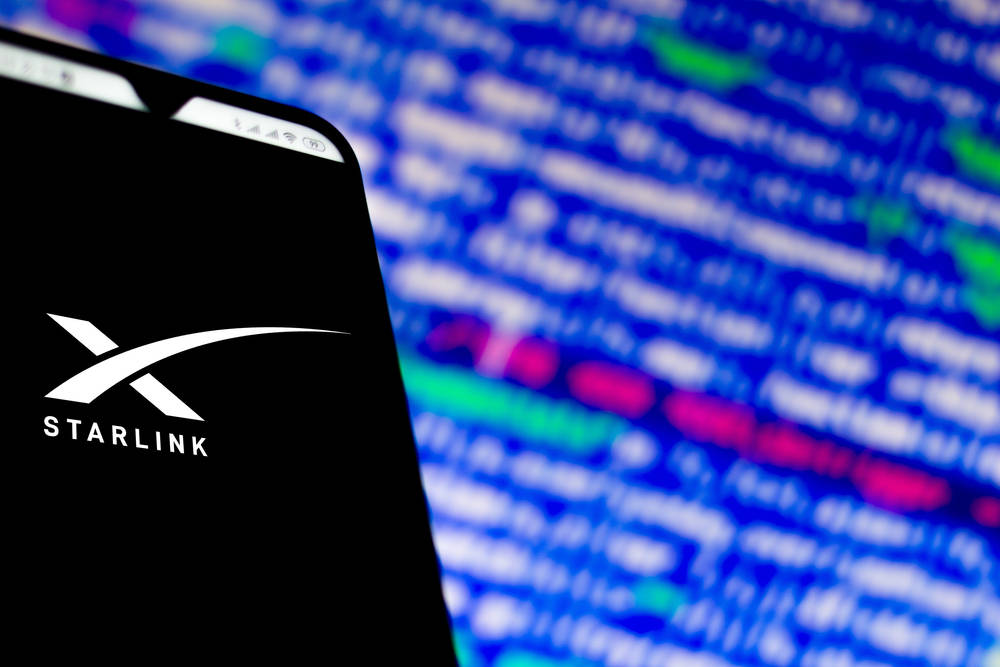SpaceX's Starlink Satellite Broadband Constellation To Achieve Full Global Coverage By September, Boss Claims

The dream of ubiquitous satellite broadband is nearing reality, according to Starlink president Gwynne Shotwell.
Speaking at an Aussie bank's Technology conference, the company leader said global coverage would be reached by September.
In her talk, Shotwell said "continuous global coverage" would be achieved when SpaceX's satellites reach their optimal operational orbit in about three months' time.
The company recently won permission from the Federal Communications Commission to reduce the altitude of its US-based satellites from between 1,100-1,300km to 540-570km, which may allow it to improve coverage in the south of the country, as well as in the polar regions, with Alaska tipped to be a main beneficiary.
Shotwell clarified that actual availability was subject to regulatory approval in the countries Starlink hopes to serve. This approval would have to be sought on a territory-by-territory basis. SpaceX recently won permission from Ofcom to introduce Starlink to the UK, and it is currently available to consumers in beta.
- Hubble Space Telescope sails serenely on in safe mode after efforts to switch to backup memory modules fail
- FCC pushes forward on rules to block the certification of new telecoms gear from ZTE and Huawei
- Intrepid Change.org user launches petition to make Jeff Bezos' space trip one-way
- SpaceX spat with Viasat: Rival accused of abusing legislation to halt Elon's Starlink expansion
Nonetheless Starlink faces challenges. In April, US satellite broadband provider Viasat filed a legal challenge against SpaceX's proposed elevation changes, claiming America's comms watchdog, the FCC, had rubberstamped the plans without doing its ecological due diligence. The legal broadside alleged the change in orbit may result in a greater number of collisions, which would increase the amount of space debris, and imperil potential future launches.
Viasat's was joined in its opposition by satellite TV provider Dish Network, as well as consulting firm The Balance Group.
Both the FCC and SpaceX have filed counterclaims, with the former pointing to mitigations made to limit the likelihood of collisions within the Starlink constellation. These have included thrusters that can move satellites out of the way of incoming objects, as well as a design that ensures failed or defunct satellites burn up when entering the Earth's atmosphere.
SpaceX has additionally accused ViaSat of acting in bad faith, claiming in legal docs it had allegedly used environmental legislation to kneecap one of its competitors.
The company aims to ultimately deploy 12,000 satellites, with an estimated cost of $10bn. It currently offers services in 10 countries, and has claimed a pre-order backlog of 500,000. ®
From Chip War To Cloud War: The Next Frontier In Global Tech Competition
The global chip war, characterized by intense competition among nations and corporations for supremacy in semiconductor ... Read more
The High Stakes Of Tech Regulation: Security Risks And Market Dynamics
The influence of tech giants in the global economy continues to grow, raising crucial questions about how to balance sec... Read more
The Tyranny Of Instagram Interiors: Why It's Time To Break Free From Algorithm-Driven Aesthetics
Instagram has become a dominant force in shaping interior design trends, offering a seemingly endless stream of inspirat... Read more
The Data Crunch In AI: Strategies For Sustainability
Exploring solutions to the imminent exhaustion of internet data for AI training.As the artificial intelligence (AI) indu... Read more
Google Abandons Four-Year Effort To Remove Cookies From Chrome Browser
After four years of dedicated effort, Google has decided to abandon its plan to remove third-party cookies from its Chro... Read more
LinkedIn Embraces AI And Gamification To Drive User Engagement And Revenue
In an effort to tackle slowing revenue growth and enhance user engagement, LinkedIn is turning to artificial intelligenc... Read more

